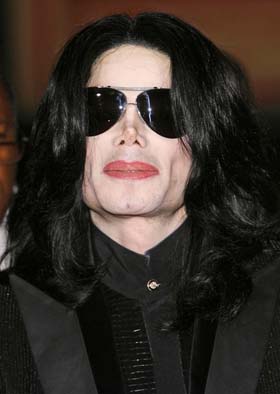 LOS ANGELES – Prospective jurors summoned for the involuntary manslaughter trial of Michael Jackson’s doctor will be required to disclose personal details and opinions while answering about 160 questions on a 30-page questionnaire, a judge said Wednesday.
LOS ANGELES – Prospective jurors summoned for the involuntary manslaughter trial of Michael Jackson’s doctor will be required to disclose personal details and opinions while answering about 160 questions on a 30-page questionnaire, a judge said Wednesday.
Superior Court Judge Michael Pastor said he was authorizing the unusually lengthy form because he wants as much information as possible about jurors in the high-profile case.
At a brief pretrial hearing, Pastor also granted a defense request for a first-generation copy of a fingerprint found on a broken syringe in the superstar’s bedroom on the day he died. The defense said it had been given a poor copy of the print that was insufficient for identification and analysis.
The lawyers are seeking the fingerprint as part of their effort to show Jackson injected himself with the powerful anesthetic propofol, causing his own death while defendant Dr. Conrad Murray was out of the room.
"It’s very technical, but I’ll sign the order," Pastor said.
Prosecutors had no objection.
The issue involving the broken syringe also was explored at a preliminary hearing in January.
The judge also issued a stern warning to lawyers that he will not tolerate any public leaks of the questionnaires before they are submitted to jurors. He said he would give each attorney one copy of the document to be watermarked for identification.
"I do not want this questionnaire floating around in the universe," he said. "I do not want any impact on prospective jurors."
The questionnaire is likely to probe jury prospects’ views of Jackson’s music and what they know about his life. They are also expected to be asked opinions about the medical profession and their relationships with their own doctors.
The questionnaire will seek to establish if candidates can be fair in deciding the case.
The questionnaires, to be filled out on March 24 and 25, will be just the beginning of the jury selection process. After initial screening, candidates will be ordered back on May 4 to undergo in-person questioning.
Jackson died on June 25, 2009, of what was found to be acute propofol intoxication, with other sedatives found to have been a contributing factor. Murray has pleaded not guilty.
Attorney Michael Flanagan has said a huge amount of propofol – possibly 150 milligrams – would have had to be present in Jackson’s body to reach the level that killed him.
Murray has said he gave Jackson only 25 milligrams of the drug along with small amounts of benzodiazepines, a sedative, to help him sleep.
Flanagan suggested that Jackson, desperate for sleep, could have injected himself with more propofol. Prosecution experts testified that such a scenario was unlikely.
Flanagan said a broken syringe was found on the bedroom floor in addition to a syringe in an intravenous medication bag.
Copyright © 2011 The Associated Press. All rights reserved.